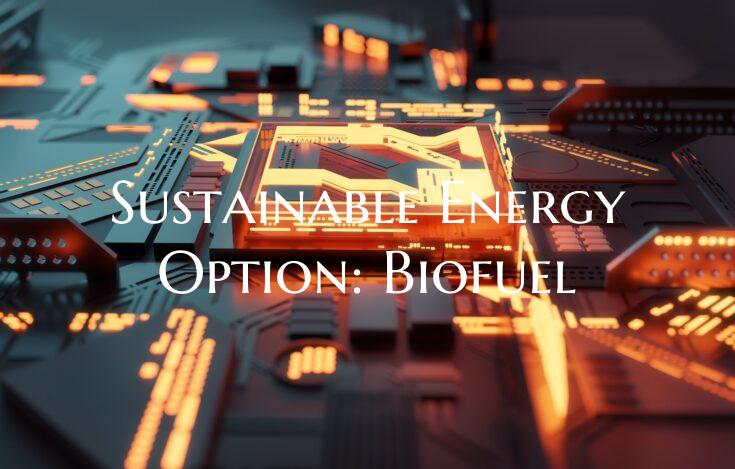Sustainable Energy Option: Biofuel
Biofuels are a promising sustainable energy option that holds great potential for reducing greenhouse gas emissions and dependence on fossil fuels. Derived from organic matter such as plants, agricultural byproducts, and waste materials, biofuels offer a renewable and environmentally friendly alternative to traditional petroleum-based fuels.
One of the key advantages of biofuels is their ability to contribute to mitigating climate change. Unlike fossil fuels, biofuels release lower levels of carbon dioxide when burned, as the plants used to produce them absorb carbon dioxide during their growth cycle. This means that biofuels can help reduce overall carbon emissions and combat the effects of global warming.
In addition to their environmental benefits, biofuels also provide opportunities for sustainable development and economic growth. The production of biofuels can create jobs in rural areas and support local economies, especially in regions where agriculture is a primary industry. Furthermore, utilizing biofuels can reduce the dependence on imported fossil fuels, enhancing energy security and promoting self-sufficiency in energy production.
There are different types of biofuels, including ethanol, biodiesel, and biogas, each with its own production process and applications. Ethanol, for example, is commonly derived from sugar or starch crops such as corn or sugarcane and is used as a blending component in gasoline. Biodiesel, on the other hand, is produced from oils like soybean oil or recycled cooking oil and can be used as a direct substitute for diesel fuel. Biogas is generated from decomposing organic matter such as food waste or manure and can be used for heating, electricity generation, or as a transportation fuel.
While biofuels offer significant benefits, challenges such as land use competition, food security concerns, and potential environmental impacts must be carefully addressed to ensure their sustainable production and use. Research and technological advancements continue to improve the efficiency and sustainability of biofuel production methods, making them an increasingly viable option for meeting energy needs while reducing carbon emissions.
In conclusion, biofuels represent a promising sustainable energy option that can play a vital role in transitioning towards a greener and more sustainable energy future. By promoting innovation, investment, and responsible practices in biofuel production, we can harness the power of renewable energy sources to create a cleaner, more resilient energy system for generations to come.

